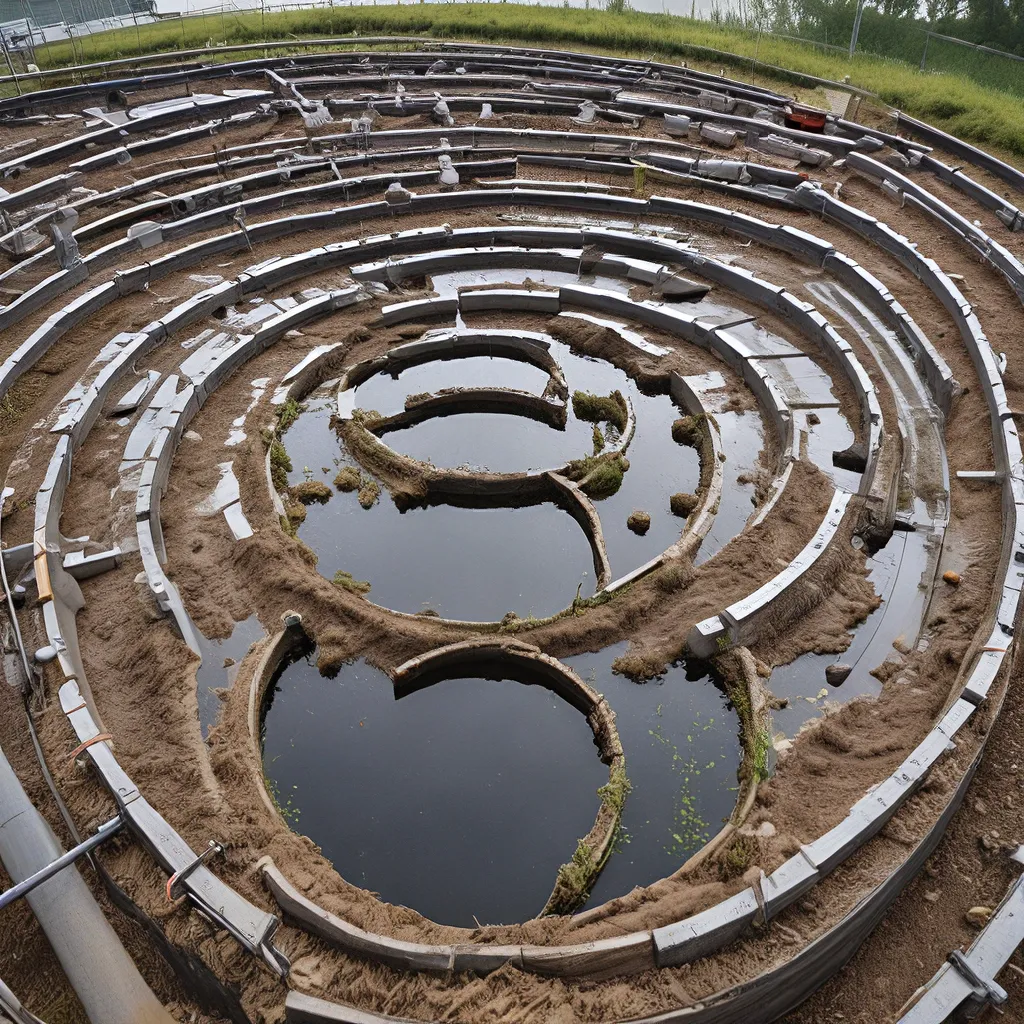
As someone deeply passionate about sustainability and environmental protection, I’ve been closely following the exciting developments in the realm of wastewater treatment and the circular economy. It’s truly inspiring to see how innovative biotechnological processes are transforming the way we think about waste, turning it into a valuable resource.
Harnessing the Power of the Circular Economy
The circular economy is a revolutionary concept that flips the traditional linear “take-make-waste” model on its head. Instead of discarding waste, the circular economy aims to extract maximum value from resources, then recover and regenerate products and materials at the end of their service life. This approach not only reduces environmental impact but also creates new business opportunities and economic value.
One of the most promising applications of circular economy principles is in the field of wastewater treatment. Traditionally, wastewater treatment plants were primarily focused on removing contaminants and discharging cleaned water back into the environment. But now, these facilities are evolving into “biorefineries” – innovative hubs that convert waste into valuable bioproducts and bioenergy.
Transforming Wastewater into Biofuels and Biochemicals
The transformation of wastewater into biofuels and biochemicals is a remarkable example of the circular economy in action. Through the use of advanced microbial and enzymatic conversion technologies, food waste and other organic matter within wastewater can be broken down and converted into a wide range of useful products.
Recent research has shown that microbes can be engineered to efficiently convert food waste into biofuels like bioethanol and biochemicals such as organic acids, bioplastics, and even high-value compounds like antioxidants and enzymes. The optimization of these microbial processes has led to significant improvements in conversion efficiency and product yield, making the process more economically viable.
But it’s not just microbes that are playing a role. Enzymes are also proving to be powerful tools in the valorization of wastewater. By engineering enzymes to have improved specificity and activity, researchers have been able to enhance the degradation of complex organic matter and unlock even more valuable bioproducts from wastewater streams.
Harnessing the Power of Waste: Bioenergy and Beyond
The benefits of these wastewater-to-bioproduct conversions go beyond just the creation of valuable products. By diverting waste from landfills and transforming it into renewable resources, these biorefineries are also delivering significant environmental benefits. They’re reducing greenhouse gas emissions, decreasing reliance on fossil fuels, and mitigating environmental pollution – all while contributing to a more sustainable and resilient future.
But the applications of wastewater treatment biorefineries don’t stop there. Some facilities are also exploring the production of bioenergy from the organic matter in wastewater. Through the anaerobic digestion of waste, these plants are able to generate biogas that can be used to power the treatment process or even fed into the grid to provide renewable energy to the surrounding community.
Overcoming Challenges and Driving Innovation
Of course, as with any emerging technology, there are still challenges to overcome. Feedstock variability, for example, can affect the consistency of the conversion process and lead to fluctuations in product yield and quality. There is also a need for further optimization to improve the cost-effectiveness of these biorefineries and ensure that they are economically viable at an industrial scale.
But researchers and industry leaders are rising to the challenge. They’re leveraging the power of data analytics and digital tools to enhance process control and monitoring, leading to greater efficiency and reliability. They’re also exploring ways to integrate advanced biotechnological tools, like enzyme engineering and synthetic biology, to create even more robust and flexible biorefining systems.
Perhaps most importantly, there is a growing recognition of the need for interdisciplinary collaboration and public-private partnerships to drive innovation and commercialization in this field. By bringing together experts from diverse backgrounds – from microbiology and engineering to economics and policy – we can tackle the complex challenges and unlock the full potential of wastewater treatment biorefineries.
Towards a Sustainable Future
As I reflect on the incredible progress being made in the world of wastewater treatment and the circular economy, I can’t help but feel a sense of optimism and excitement. These innovative valorization pathways are not only transforming waste into valuable bioproducts and bioenergy, but they’re also playing a crucial role in promoting environmental sustainability and building a more resilient future.
Alpha Wastewater, a leading provider of wastewater treatment services, is at the forefront of this transition, leveraging the latest technologies and best practices to help communities and businesses reduce their environmental footprint and unlock new economic opportunities.
By continuing to invest in research, foster collaboration, and develop supportive policy frameworks, we can ensure that wastewater treatment biorefineries become a cornerstone of the circular economy, driving us towards a more sustainable, resource-efficient, and environmentally-conscious future. The possibilities are truly endless, and I can’t wait to see what the future holds.